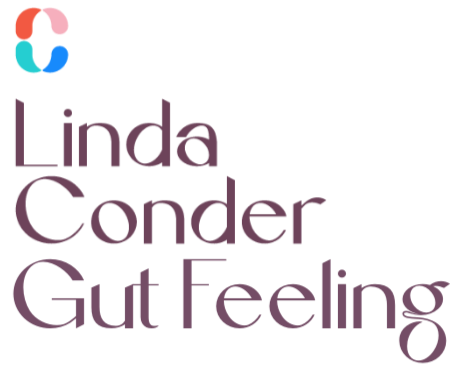Remove to Repair: The Path to Gut-Brain Healing
When it comes to your health, healing doesn’t start by adding more, it starts by removing what’s getting in the way.
The “Remove to Repair” approach is the first step to calming inflammation, repairing your gut lining and supporting your brain. Think of it like cleaning up your inner garden before planting the seeds for new growth.
Why Inflammation Matters
Inflammation is your body’s alarm system, but when it stays switched on for too long, it becomes the fire that burns from within.
Researchers at the Centenary Institute in Sydney have shown that chronic inflammation lasting months or years damages healthy cells and tissues, leading to diseases like arthritis, cardiovascular disease, inflammatory bowel conditions, neurological decline and even some cancers.
The good news? You can dial that fire down naturally.
What you eat and what you don’t eat, directly shapes how your body and brain feel.
The Gut-Brain Connection: Your Inner Conversation
Australian researchers at Monash University have found that your gut and brain talk to each other constantly.
The bacteria in your gut produce chemicals that can either calm your mind or fan the flames of anxiety and brain fog.
When your gut is inflamed, the signals it sends to your brain become distorted, leading to mood changes, fatigue and even mental sluggishness. When you remove inflammatory foods, you literally clear the static in that gut-brain conversation.
What to Remove and Why
1. Processed Foods and Seed Oils
A major study of over 1,400 Australians found that processed foods encourage harmful bacteria like Firmicutes and Ruminococcus, the troublemakers linked to inflammation.
These bacteria thrive on processed fats and sugar and damage the gut’s protective mucous layer.
Swap this:
❌ Canola, sunflower, safflower oils
✅ Extra virgin olive oil and avocado oil, these help protect your gut lining and reduce inflammation.
2. Refined Sugars and Processed Carbs
Sugar feeds the bad bacteria in your gut and spikes your blood sugar, leading to energy crashes and brain fog.
Studies show that diets high in processed meat, sugar and soft drinks fuel inflammatory bacteria, while those rich in fish, nuts and legumes do the opposite.
Swap this:
❌ Soft drinks, white bread, sweets
✅ Whole foods, lentils, quinoa, fish and raw nuts for steady energy and sharper focus.
3. Gluten-Containing Grains
For some people, gluten irritates the gut lining and can affect mood and cognition.
Swap this:
❌ Wheat, barley, rye
✅ Quinoa, buckwheat and gluten-free oats, gentle on the gut and still full of fibre.
What to Add: Your Anti-Inflammatory Arsenal
1. Omega-3 Fatty Acids
Research from Monash University shows that omega-3s (especially DHA) are critical for brain function and mood.
Low omega-3 intake has been linked to poor neural communication and adding it back can help restore balance.
Action Step:
Include salmon, sardines, chia seeds and walnuts several times a week.
2. Eat the Rainbow, Mediterranean Style
Studies in Australian and international populations found that a Mediterranean-style diet (think plants, fish, olive oil, and legumes) lowers inflammatory bacteria and supports beneficial microbes like Faecalibacterium, a powerful anti-inflammatory species.
Action Step:
Fill half your plate with colourful vegetables, drizzle with olive oil and enjoy nuts or legumes daily.
3. Spices and Polyphenols
Turmeric and green tea aren’t just trendy, they’re scientifically backed inflammation tamers.
One study found that a spice blend reduced inflammatory cytokines (IL-6, IL-1β, TNF-α), while green tea polyphenols increased anti-inflammatory compounds in the body.
Action Step:
Add turmeric, cinnamon and green tea to your daily routine.
4. Fermented Foods
Fermented foods like kefir, yogurt, sauerkraut and kimchi feed beneficial bacteria (Bifidobacterium and Lactobacillus).
These microbes help calm the immune system and strengthen the gut barrier.
Action Step:
Have one small serve of fermented food each day
Australian Research Breakthrough: Gut–Lung Link
The Centenary Institute and UTS recently discovered a link between gut bacteria and lung health.
They found that a high-fibre diet improved symptoms in COPD patients, showing how what happens in the gut doesn’t stay in the gut, it influences your entire body.
As Professor Phil Hansbro explains:
“The gut hosts the largest and most diverse microbiome in the body, which can either trigger or inhibit inflammation, even in the lungs.”
Meaning:
Your gut really is the gatekeeper for your whole body’s wellbeing.
The Bottom Line: Make Space for Healing
Healing your gut and brain isn’t about restriction, it’s about making space for repair.
Each time you replace processed foods with real, colourful, anti-inflammatory ones, you’re sending your body a message:
“I’m ready to heal.”
Your microbiome shifts.
Your inflammation cools.
Your brain starts firing more clearly again.
Every meal is a vote for your long-term vitality and mental clarity.
So choose colourfully, eat mindfully and most importantly, listen to your gut.
It’s wiser than you think.
MEDICAL DISCLAIMER
The information found on Linda Conder Gut Feeling or any of its media platforms is intended for informational and educational purposes only. Any statements made on these platforms are not intended to diagnose, cure, treat or prevent any disease or illness. Please consult with your medical practitioner before making any changes to your current diet and lifestyle.
Want to Decode Your Gut’s Messages—and Fix What’s Really Going On?
If you’ve ever wished you had a friendly guide to help you understand your gut symptoms—and simple, doable steps to start feeling better—you’ll love the Gut Feeling Collective.
Inside, you’ll get:
✅ Monthly gut health challenges you can actually stick to
✅ Live Q&A sessions with me, Linda, to get your questions answered
✅ Research-backed resources (without the overwhelm)
✅ A supportive community walking the same gut-brain health journey as you
Your gut doesn’t have to stay a mystery. Join the Collective today and start growing your healthiest gut garden yet.










